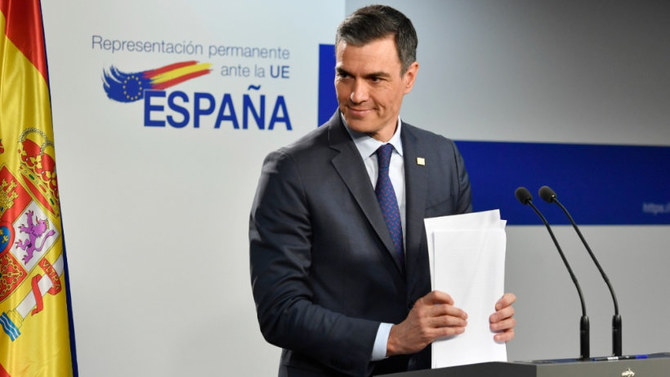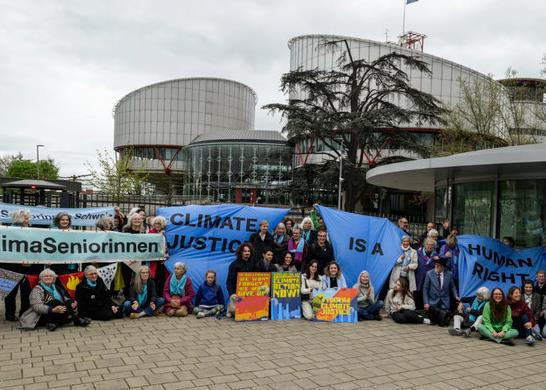
The focus in much of Europe during the summer months often turns toward Spain, the euro zone’s fourth largest economy, given that it is one of the leading tourist destinations in the region. However, two major political events are intensifying the focus on the country this year.
Not only is Spain gearing up for the most important national election in Europe this year, a “snap” ballot due to be held in late July, Madrid is also preparing to take over the presidency of the EU Council on July 1. This rotating, six-month position does not carry any executive powers, per se, but it does allow the incumbent state to set the agenda, host meetings, steer negotiations, draft compromise texts, organize votes and speak vis-a-vis the other EU institutions.
The coincidental timing of these two events is not ideal for Spain, preparations-wise, nor indeed for Brussels. Certainly, this is not the first time an EU presidency has coincided with a general election; last year, for example, President Emmanuel Macron maintained France’s EU presidential mandate while he battled for reelection.
However, there are two reasons why the current situation in Spain is different from that in France last year. Firstly, Macron was a favorite to win reelection and this is not the case with the Pedro Sanchez government in Spain.
Moreover, the next EU Council presidency is a particularly important one because the one that follows, to be held by Belgium between January and June 2024, will be hamstrung by elections to the European Parliament, as a result of which politicians in Brussels will transition to full-time campaigning mode.
Therefore the Spanish presidency has a high degree of importance, not least because the intensity of the war in Ukraine could increase in the coming months, and many key, related policy issues require attention and resolution, including a potential 11th round of sanctions against Moscow, a €500 million ($540 million) plan to ramp up ammunition production to aid Ukraine, plus an unprecedented scheme to confiscate frozen Russian assets to help pay for post-war reconstruction.
On the domestic European front, there is a post-crisis overhaul of the electricity market for the EU to deal with, a world-first attempt to regulate artificial intelligence, an ambitious strategy to prevent the exodus of green industries, and the long-awaited, hard-fought reform of the EU’s fiscal rules.
Already, Spanish Prime Minister Pedro Sanchez has postponed a high-profile speech to the European Parliament, scheduled for July 13, in which he was due to unveil the priorities of his country’s presidency. It has been pushed back to September, by which time he might no longer be in office.
Madrid insists its presidency will continue as planned, regardless of the general election and whether the government changes. However, there are significant concerns in Brussels about Spain’s ability to effectively fulfill the responsibilities associated with this commitment.
What makes this situation all the more complex is that the incumbent, left-of-center Spanish Socialist Workers’ Party-led government headed by Sanchez, which has been in power since 2018, is on the ropes following very poor regional and local elections results last month. It is for this reason that Sanchez caught many Spaniards by surprise with his decision to call a snap election, to be held on July 23.
With the next EU presidency so important to the bloc, any post-election instability could be magnified across the continent.
Andrew Hammond
This strategy is not without precedent. In 2019, Sanchez, who had only been in power for a few months at that time, called a snap general election which proved successful in triggering a great mobilization of the Spanish left in the face of the threat that the far-right, nationalist Vox party might take office.
The prime minister is hoping for a similar result this time, even though polls suggest there is a significant possibility of a shift in power in Madrid in July to a right-of-center administration headed by People’s Party leader Alberto Nunez Feijoo.
While the political momentum appears to be with the political right, however, no single party is expected to win enough votes for an outright majority. Therefore a period of minority government or a potentially shaky coalition could ensue.
According to latest polls, the People’s Party is likely to secure the most seats, which might mean it will need to form a coalition government with one or more parties, perhaps including Vox, which is skeptical about climate change and critical of feminists and globalists.
This latest hinge moment in Spanish politics comes in the context of a wider story: The collapse of the long-running, post-Franco political duopoly of the right-of-center People’s Party and the Spanish Socialist Workers’ Party that had dominated the country since the late 1970s. Indeed, the combined vote of the two parties, which accounted for about 85 percent of the ballot at the 2008 general election, has fallen away significantly in subsequent elections.
Several “new” parties have filled the resultant political vacuum, including Vox, which only won its first parliamentary seats at the most recent election. Other new parties to emerge recently include the leftist Podemos and Izquierda Unida, collectively known as Unidos Podemos, which currently support the Spanish Socialist Workers’ Party-led government in Madrid.
The rise of these new groups has been fueled by popular anger over political scandals, along with the fallout from the worst recession in the country for more than a generation after the 2007-08 international financial crisis, as a result of which there was a property crash and unemployment peaked at 27 percent.
While the People’s Party looks likely to emerge as the largest party, depending upon the wider election results there is still an outside possibility that a Spanish Socialist Workers’ Party-led alliance could emerge. This would require the support of other parties, though, and it remains unclear whether, collectively, they can win enough seats for a majority.
Taking all of this into account, Spain is therefore heading into an enormously consequential six months. With the next EU presidency so important to the medium-term future of the bloc, any post-election instability in the nation could be magnified across the continent, given the chilling effect it could have on the wider European international and domestic policy agenda, including the war in Ukraine.
• Andrew Hammond is an associate at LSE IDEAS at the London School of Economics.












